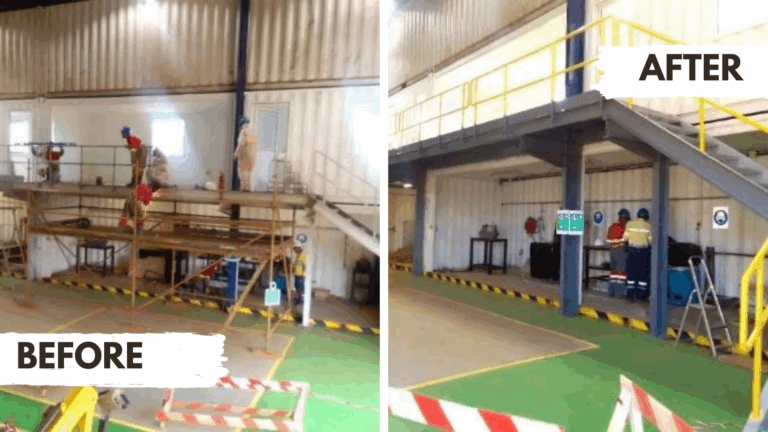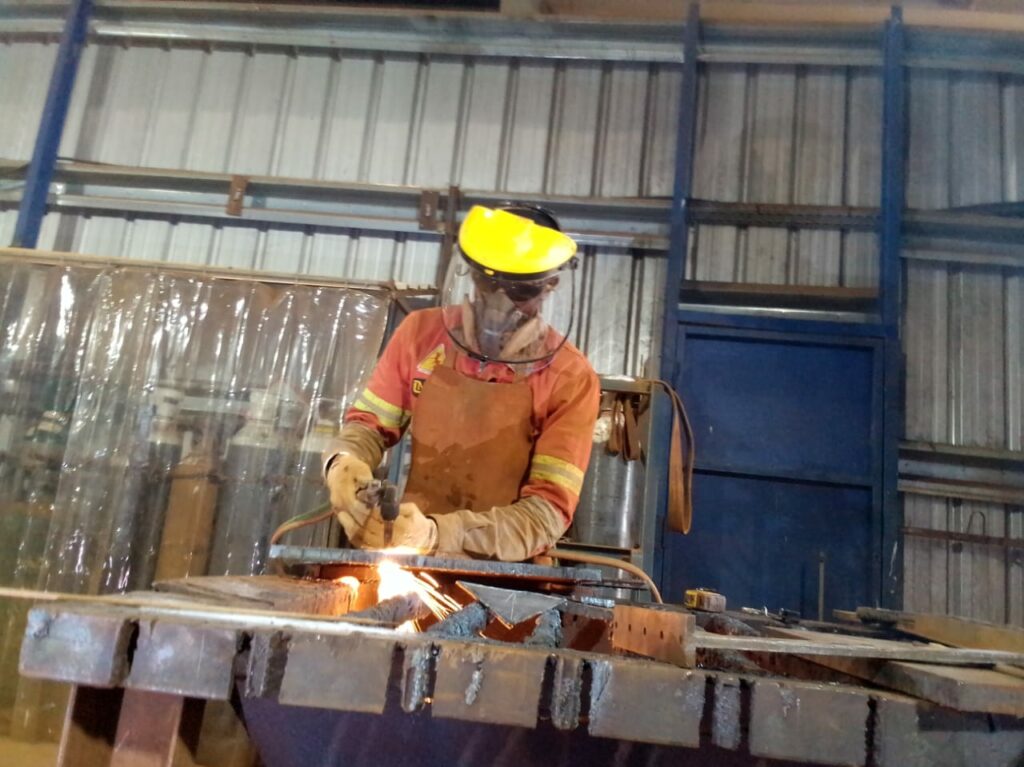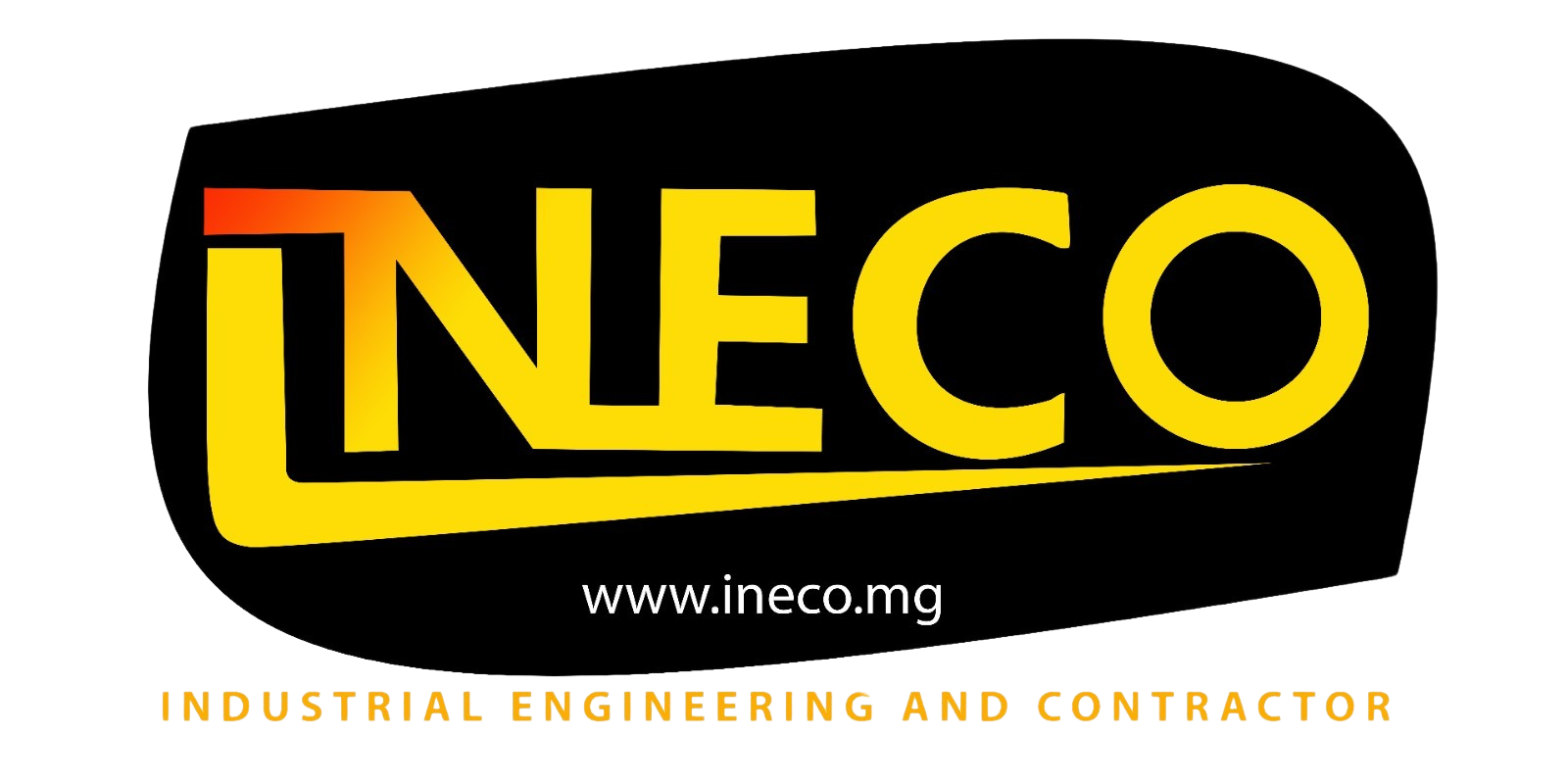In a world where industrial performance and sustainability are key imperatives, mechanical engineering and steel work have become essential pillars. Every metal structure, machine, or industrial system relies on precise design principles, ensuring safety, efficiency, and durability.
Whether you are a project manager, engineer, or entrepreneur, understanding these disciplines enables you to make better decisions, reduce costs, and anticipate problems before they arise.
In this guide, we will explore the fundamentals, advanced techniques, best practices and INECO’s specialized services to provide you with a clear and practical vision of this strategic field.
The fundamentals of mechanical engineering
Mechanical Engineering: definition and strategic role in industry
Mechanical engineering is the discipline that designs, analyzes and optimizes mechanical systems — whether industrial machines, conveyor systems, or complex metal structures. It combines scientific theory, technical calculations, and innovation to create reliable and sustainable solutions.
Its main objectives are to:
Ensure the safety and reliability of industrial facilities.
Optimize mechanical performance and reduce operational costs.
Guarantee durability and ease of maintenance for systems.
In practice, every industrial project begins with a detailed mechanical study to determine the best design and the most suitable materials for the intended use.
Mechanical engineering specialties supporting your infrastructure
Mechanical engineering is not a single discipline — it includes several specialties, each essential to the success of an industrial project:
Mechanical design: Creating parts and systems tailored to specific needs, often using advanced CAD software.
Maintenance and supervision: Monitoring facility performance and carrying out preventive interventions to avoid costly downtime.
Simulation and modeling: Virtual testing to anticipate material behavior and structural resistance.
Energy and industrial optimization: Reducing losses and improving the efficiency of machines and processes.
For example, when designing an industrial steel frame, the mechanical engineer must calculate loads, select materials, and anticipate environmental constraints to ensure both safety and durability.
Principles of design and industrial optimization
Effective mechanical engineering is based on precise, proven principles. These transform an idea into a tangible, high-performance project:
Reliability and safety: Ensuring that structures and mechanical systems withstand extreme loads and conditions.
Durability: Selecting materials resistant to corrosion, thermal stress, and wear.
Economic efficiency: Optimizing resources to reduce costs without compromising quality.
Innovation: Integrating new technologies to enhance processes and final products.
👉 In one metal production plant, optimizing conveyor design reduced downtime by 15% and maintenance costs by 20%, while also increasing operator safety.
Steel work : techniques and industrial innovations
Essential materials for industrial steel work
Industrial steel work relies on the careful selection of materials and structural types. The most commonly used include:
Steel: strong, flexible, and ideal for heavy frameworks.
Aluminum: lightweight and corrosion-resistant, perfect for modular structures.
Special alloys: suited for extreme environments exposed to heat or humidity.
Types of structures include:
Steel frameworks for industrial halls and warehouses.
Beams, columns, and modular walkways.
Custom platforms and structures for heavy equipment.
👉 For example, a custom industrial platform designed in stainless steel enabled a client to support machines weighing over 50 tons while improving maintenance access.
Metal fabrication process: from cutting to installation
Fabrication and assembly of metal structures follow several key stages:
Cutting and shaping parts
according to technical drawings.
Welding, bolting and mechanical assembly
to ensure strength.
Quality control at each stage
to verify dimensions and resistance.
On-site installation
supervised by engineers to ensure compliance and safety.
This structured approach minimizes errors and ensures each project meets technical and regulatory standards.
Quality control and resistance testing: a constant safety requirement
To guarantee its durability and safety, every metal structure undergoes rigorous testing:
Load and bending tests to verify component resistance.
Inspection of welds and joints to prevent failures.
Material analysis to detect defects and ensure longevity.
These tests are vital for industrial facilities where failures can result in major financial losses or risks to personnel.
Innovations in steel work: 3D printing, automation and sustainability
The steel work industry is rapidly evolving thanks to technological advances:
Process automation: robots and CNC machines for precise cutting and assembly.
Metal 3D printing: creation of complex parts impossible with traditional methods.
Eco-friendly materials: recyclable alloys and low-energy manufacturing processes.
Modular and prefabricated solutions: reducing lead times and optimizing costs on construction sites.
Best practices for successful industrial projects
Project planning and Sste management: avoiding delays and cost overruns
Rigorous planning is key to the success of any industrial project involving metal structures and mechanical systems. Before construction or assembly begins, it is crucial to:
Clearly define project needs and objectives.
Select the most suitable materials and technologies.
Establish a detailed schedule with validation milestones.
Anticipate technical and environmental constraints.
👉 For one industrial warehouse, precise planning reduced manufacturing time by 25% and avoided costly mid-project modifications.
Safety and maintenance of metal structures
Safety and durability are essential for reliable infrastructure:
Designing structures capable of withstanding expected loads and stresses.
Using materials resistant to wear, corrosion, and climate conditions.
Establishing a preventive maintenance plan to minimize downtime and extend service life.
Industrial performance optimization: efficiency and cost Reduction
Industrial optimization goes beyond design and also covers resource and process management:
Reducing energy losses and improving mechanical efficiency.
Minimizing production and maintenance costs through smart technical choices.
Using simulation and modeling software to test systems before production.
INECO services in mechanical engineering and steel work
INECO supports its clients at every stage of their industrial projects, delivering tailor-made solutions in mechanical engineering and metal construction. Leveraging its expertise, every project benefits from reliability, performance and durability.
Mechanical engineering office: tailored design and analysis
INECO’s team of engineers conducts in-depth technical studies for every project:
Analysis of constraints and specific requirements.
Design of custom metal parts and structures.
Use of advanced modeling software to ensure precision and safety.
Validation of plans before fabrication to avoid unexpected costs and delays.
👉 For a high-load industrial hall, INECO designed an optimized steel frame, increasing resistance by 20% while reducing material usage.
Metal fabrication and assembly: precision and guaranteed reliability
INECO ensures the fabrication and assembly of metal structures according to the strictest standards:
Cutting and shaping of custom-made parts.
Welding, bolting, and assembly supervised by experts.
Rigorous quality control at every stage for reliability and compliance.
On-site installation with technical supervision for safe and efficient setup.
Industrial maintenance and optimization: ensuring long-term performance

To extend facility lifespan and maintain performance, INECO offers maintenance and industrial optimization services:
Preventive and corrective maintenance to reduce downtime risks.
Optimization of mechanical systems to improve efficiency and lower costs.
Regular monitoring and technical advice to anticipate future needs.
Turnkey project management: coordination, quality and timely delivery
INECO provides complete and transparent project management, from design to delivery:
Coordination of technical and logistics teams.
Strict monitoring of timelines, budgets, and quality.
Regular communication with clients for clear and secure project tracking.
Our team of experts in mechanical engineering and metal construction supports you with reliable, durable, and innovative solutions.
Trends in mechanical engineering and steel work
Mechanical engineering and metal construction are evolving rapidly, driven by technological innovation, new standards, and environmental requirements.
These trends enable industrial players to enhance performance, safety and sustainability.
Automation and digitalization: toward the factory of the future
Digitalization is transforming how industrial projects are designed and executed:
Digital twins: full modeling of a facility to test and predict system behavior before manufacturing.
Process automation: robots and CNC machines for highly precise cutting, assembly, and welding.
Real-time monitoring: sensors and software to track equipment performance and anticipate interventions.
Additive manufacturing and metal 3D printing
Metal 3D printing is revolutionizing design and production:
Creating complex custom parts impossible with traditional methods.
Reducing waste thanks to more precise manufacturing.
Rapid prototyping to test parts before full-scale production.
New industrial standards and certifications: ensuring quality and safety
Compliance with standards is essential for safety and quality assurance:
ISO and ASTM international standards for materials and processes.
EN certifications for industrial metal structures.
Systematic quality control to validate every project stage.
Sustainability and eco-responsible materials: toward greener construction
Industrial projects increasingly integrate sustainable solutions:
Use of recyclable alloys resistant to corrosion and environmental stress.
Energy-efficient manufacturing processes to reduce carbon footprint.
Modular and prefabricated design to minimize waste on site.
FAQ
What is the difference between mechanical engineering and metal construction?
Mechanical engineering focuses on the design, optimization, and maintenance of mechanical systems, while industrial metal construction involves the fabrication and assembly of metal structures (frames, platforms, walkways). Both disciplines complement each other to ensure safety, performance, and durability in industrial projects.
How to choose a company for your mechanical and metal engineering projects?
Choosing the right company should be based on several criteria:
- experience in turnkey industrial projects
- quality certifications
- the expertise of its mechanical design office
- its ability to offer innovative solutions (such as metal 3D printing or process automation).
What are the economic benefits of an industrial metal structure?
Opting for industrial metal construction reduces construction time, lowers maintenance costs thanks to the durability of the structures, and improves productivity through optimized industrial performance. In the long run, these solutions deliver an excellent return on investment (ROI).
Which standards govern steel work projects?
Industrial metal structures must comply with international standards (ISO, EN, ASTM) to ensure safety and regulatory compliance. These standards cover the materials used, manufacturing processes, resistance testing, and industrial mechanical maintenance.
What are the average timelines for a turnkey metal construction project?
Timelines depend on the complexity of the project, but good industrial planning and the use of modular or prefabricated solutions significantly reduce manufacturing and assembly time. A turnkey industrial project can often be delivered 20 to 30% faster than traditional construction.


